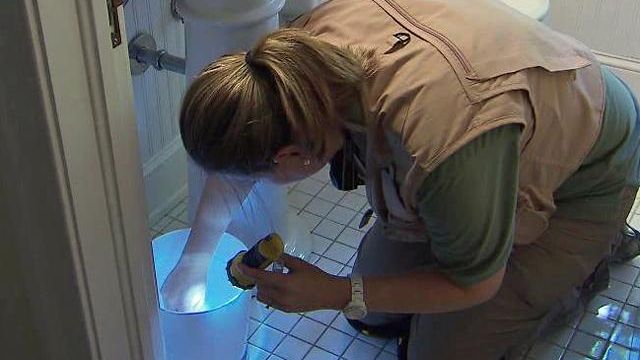Researchers: Triangle homes crawling with 'dozens' of bug species
Most people don't spend too much time thinking about the bugs that live in their house, but like it or not, they are everywhere, competing with humans for both food and space.
Posted — UpdatedIn an attempt to figure out what sorts of bugs and bug-relatives live in Triangle homes and why, researchers from the North Carolina Museum of Natural Science's Nature Research Center and North Carolina State University are collaborating on a new effort to study the insects so often ignored, or in many cases, killed.
Eleanor Spicer Rice, an entomologist who studies bugs for a living, opened her doors to researchers Tuesday.
"Insects get a terrible rap," she said. "Most insects are not pest species and most cannot hurt you."
During Tuesday's home inspection, researchers looked through every nook and cranny of Spicer Rice's home, checking corners, window sills and more to see what bugs call her inside-the-beltline house their home.
"We're trying to understand who's here and why they are living with us," Michelle Trautwein, of the Nature Research Center, said.
The researchers hope to prove that insect populations inside homes are larger than people realize and diverse based on what is inside each home and how people live.
After investigating six Triangle houses – they hope to visit up to 100 – researchers are already finding some surprises.
"We're finding way more species than we'd expect in our homes," Trautwein said. "It would not be surprising to find more than 100 species today in (Spicer Rice's) house. There is so much to be discovered right here under our noses."
Spicer Rice, who understands the research team's affection for insects, said having dozens of species in her house isn't a bother.
"I know what's good for your house and what's bad for your house, so we keep the good ones and try to kick out the bad ones," she said.
• Credits
Copyright 2024 by Capitol Broadcasting Company. All rights reserved. This material may not be published, broadcast, rewritten or redistributed.





